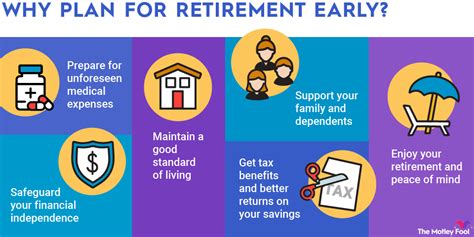
Hoarding $650,000 in cash at age 52 is a wealth-stunting strategy, financial experts warn, advising that strategic investments are crucial for long-term growth and combating inflation’s erosive effects.
A 52-year-old individual sitting on $650,000 in cash has sparked debate among financial professionals, who overwhelmingly recommend diversifying into investments to maximize wealth accumulation and mitigate the risks of inflation. The query, initially posed to MarketWatch’s “Help Me Retire” column, highlights a common dilemma: the allure of cash’s perceived safety versus the potential for significant gains through strategic financial planning.
The individual, identified only as contemplating retirement and currently holding a substantial amount in cash, sought guidance on the optimal path forward. While acknowledging the peace of mind that a large cash reserve can provide, particularly in uncertain economic times, financial advisors caution against the long-term disadvantages of this approach.
The Erosion of Wealth by Inflation
The primary concern cited by experts is inflation, which steadily diminishes the purchasing power of cash. “Inflation is the silent wealth killer,” says certified financial planner Mary Johnson of Amalgamated Financial Services, reflecting a common sentiment among financial professionals. “While your $650,000 may seem substantial now, its real value will decrease over time if it’s simply sitting in a safe or a low-yield account.” The current high-inflation environment, even if it moderates in the coming years, makes holding large sums of cash particularly detrimental.
According to recent data, the annual inflation rate, while showing signs of easing, remains above historical averages. This persistent inflation eats away at the real value of savings, meaning that the same amount of money will buy fewer goods and services in the future. Therefore, the advisors argue, the individual’s $650,000, while substantial, is losing value daily, and that lost value is irretrievable.
Investment Options for Growth
Instead of holding cash, financial advisors recommend exploring a diverse range of investment options tailored to the individual’s risk tolerance, time horizon, and retirement goals. These options can include:
-
Stocks: Investing in the stock market offers the potential for high returns, but also carries a higher level of risk. Stocks are generally considered a long-term investment, suitable for individuals who can withstand market fluctuations. “A diversified portfolio of stocks can provide significant growth over time,” notes certified investment advisor, John Miller. “However, it’s essential to understand your risk tolerance and invest accordingly.” Options include individual stocks, mutual funds, and exchange-traded funds (ETFs).
-
Bonds: Bonds are generally considered less risky than stocks and can provide a more stable source of income. They represent loans made to governments or corporations, which pay interest over a specified period. Bonds can be included in a portfolio to balance out the volatility of stocks.
-
Real Estate: Investing in real estate can provide both income and capital appreciation. Rental properties can generate a steady stream of income, while the value of the property can increase over time. However, real estate investments also come with their own set of challenges, such as property management, maintenance, and potential vacancies.
-
Mutual Funds and ETFs: These investment vehicles offer diversification by pooling money from multiple investors to invest in a variety of assets. Mutual funds are actively managed by professional fund managers, while ETFs typically track a specific index. They are popular choices for investors who want to diversify their portfolios without having to select individual stocks or bonds.
-
Index Funds: Index funds are a type of mutual fund or ETF that tracks a specific market index, such as the S&P 500. They offer broad market exposure at a low cost and are a popular choice for long-term investors.
Assessing Risk Tolerance and Time Horizon
A crucial step in developing an investment strategy is to assess the individual’s risk tolerance and time horizon. Risk tolerance refers to the amount of risk an investor is willing to take in pursuit of higher returns. Time horizon refers to the length of time an investor has until they need to access their investments.
Individuals with a long time horizon, such as those who are still several years away from retirement, can generally afford to take on more risk. They have more time to recover from any potential losses in the market. On the other hand, individuals with a shorter time horizon may want to consider a more conservative investment approach.
The Importance of Financial Planning
Financial advisors emphasize the importance of creating a comprehensive financial plan that takes into account the individual’s goals, risk tolerance, and time horizon. A financial plan can help the individual develop a roadmap for achieving their financial goals, such as retirement, paying for education, or buying a home.
“A financial plan is not just about investments,” explains financial planner Sarah Chen. “It’s about understanding your overall financial situation and developing a strategy to achieve your goals. It should include budgeting, saving, debt management, insurance planning, and estate planning.”
Seeking Professional Advice
Given the complexity of financial planning, experts strongly recommend seeking guidance from a qualified financial advisor. A financial advisor can help the individual assess their financial situation, develop an investment strategy, and monitor their progress over time.
“A good financial advisor will work with you to understand your goals and risk tolerance,” says financial consultant David Lee. “They will provide unbiased advice and help you make informed decisions about your money.” The advisor can tailor a plan based on the individual’s specific needs, considering factors such as tax implications, estate planning, and insurance coverage.
Addressing Behavioral Biases
One of the reasons people hold excessive amounts of cash is due to behavioral biases, such as loss aversion and the fear of making the wrong investment decisions. Loss aversion is the tendency to feel the pain of a loss more strongly than the pleasure of an equivalent gain. This can lead people to avoid taking risks, even when the potential rewards outweigh the potential losses.
“Many people are afraid of losing money in the stock market, so they prefer to keep their money in cash,” explains behavioral economist Lisa Green. “However, by avoiding risk altogether, they are missing out on the potential for significant gains over time.”
Financial advisors can help individuals overcome these behavioral biases by providing education and support. They can help them understand the risks and rewards of different investment options and develop a long-term perspective.
Tax Implications of Investment Decisions
It’s essential to consider the tax implications of investment decisions. Different types of investments are taxed differently, and the tax consequences can have a significant impact on overall returns.
For example, interest income from bonds is typically taxed as ordinary income, while capital gains from the sale of stocks are taxed at a lower rate. Investments held in tax-advantaged accounts, such as 401(k)s and IRAs, can grow tax-deferred or tax-free.
A financial advisor can help individuals understand the tax implications of their investment decisions and develop a tax-efficient investment strategy.
The Role of Emergency Funds
While experts advise against holding excessive amounts of cash, they also emphasize the importance of having an adequate emergency fund. An emergency fund is a savings account that is used to cover unexpected expenses, such as medical bills, car repairs, or job loss.
“It’s important to have enough cash on hand to cover three to six months of living expenses,” says financial advisor Robert Brown. “This will provide a safety net in case of unexpected events and prevent you from having to tap into your investments.”
The emergency fund should be kept in a liquid account, such as a savings account or money market account, where it is easily accessible.
Retirement Planning Considerations
For the 52-year-old individual, retirement planning is a key consideration. It’s important to determine how much money they will need to retire comfortably and develop a plan to accumulate those funds.
“Retirement planning is a complex process that requires careful consideration of your expenses, income, and investment options,” explains retirement planning specialist Susan White. “It’s important to start planning early and regularly review your plan to make sure it’s still on track.”
Factors to consider in retirement planning include:
- Retirement Age: When do you plan to retire?
- Retirement Expenses: How much money will you need to cover your living expenses in retirement?
- Retirement Income: What sources of income will you have in retirement, such as Social Security, pensions, and investments?
- Life Expectancy: How long do you expect to live in retirement?
Alternative Investment Strategies
Beyond the conventional investments already mentioned, there are a number of alternative investment strategies the individual could consider depending on their risk profile and interest. These might include:
-
Private Equity: Investing in private companies that are not publicly traded. These investments can offer potentially high returns but are also illiquid and carry significant risk.
-
Venture Capital: Investing in early-stage companies with high growth potential. These investments are even riskier than private equity but can offer substantial rewards if the companies are successful.
-
Hedge Funds: Actively managed investment funds that use a variety of strategies to generate returns. Hedge funds are typically only available to accredited investors and can be very expensive.
-
Commodities: Investing in raw materials such as oil, gold, and agricultural products. Commodities can be used as a hedge against inflation and can offer diversification benefits.
-
Cryptocurrencies: Digital or virtual currencies that use cryptography for security. Cryptocurrencies are highly volatile and speculative investments.
The Psychological Aspect of Holding Cash
Holding a large sum of cash can provide a sense of security and control, especially in uncertain economic times. However, this psychological comfort can come at the cost of potentially missing out on significant investment gains. It’s important to recognize and address the emotional factors that may be driving the decision to hold cash.
“People often hold cash because they are afraid of losing money or because they believe they can time the market,” explains psychologist Michael Taylor. “However, these beliefs are often irrational and can lead to poor investment decisions.”
Financial advisors can help individuals overcome these psychological barriers by providing education, support, and a long-term perspective.
The Importance of Regular Portfolio Reviews
Once an investment strategy is in place, it’s important to regularly review the portfolio to ensure that it is still aligned with the individual’s goals, risk tolerance, and time horizon. The market conditions, the individual’s financial situation, and their retirement goals can change over time, so it’s important to adjust the portfolio accordingly.
“A portfolio review should be conducted at least once a year,” says investment manager Jennifer Davis. “This will allow you to assess the performance of your investments, rebalance your portfolio, and make any necessary adjustments.”
Estate Planning Implications
Holding a large sum of cash can also have estate planning implications. Cash is generally subject to estate taxes, which can significantly reduce the amount that is passed on to heirs. It’s important to work with an estate planning attorney to develop a plan that minimizes estate taxes and ensures that assets are distributed according to the individual’s wishes.
Estate planning tools that can be used to reduce estate taxes include:
- Wills: A legal document that specifies how assets should be distributed after death.
- Trusts: A legal arrangement that allows assets to be held and managed for the benefit of beneficiaries.
- Gifting: Giving assets away during life to reduce the size of the estate.
- Life Insurance: Using life insurance to pay for estate taxes or provide income to heirs.
Diversification is Key
No matter what investment strategy is chosen, diversification is key to managing risk. Diversification involves spreading investments across a variety of asset classes, industries, and geographic regions. This helps to reduce the impact of any single investment on the overall portfolio.
“Don’t put all your eggs in one basket,” advises investment strategist Brian Wilson. “Diversify your investments to reduce risk and increase your chances of achieving your financial goals.”
Diversification can be achieved through:
- Asset Allocation: Dividing investments among different asset classes, such as stocks, bonds, and real estate.
- Sector Diversification: Investing in different sectors of the economy, such as technology, healthcare, and energy.
- Geographic Diversification: Investing in different countries and regions around the world.
Conclusion
While holding a substantial amount of cash may provide a sense of security, financial experts overwhelmingly agree that it is not the most effective way to grow wealth, especially at age 52. Inflation erodes the purchasing power of cash over time, making it essential to invest strategically in a diversified portfolio of assets. By assessing risk tolerance, setting financial goals, seeking professional advice, and regularly reviewing their portfolio, the individual can take steps to maximize their wealth accumulation and achieve financial security in retirement. Ultimately, the decision of how to manage their finances rests with the individual, but the advice from experts is clear: “Ditch the cash, grow your wealth!”
Frequently Asked Questions (FAQ)
-
Is it always bad to have a large amount of cash on hand?
No, it’s not always bad. Having an emergency fund covering 3-6 months of living expenses is prudent. However, holding significantly more than that, especially a sum like $650,000, solely in cash, can be detrimental due to inflation and missed investment opportunities. Cash serves as a safety net and provides liquidity for immediate needs, but it doesn’t generate returns or outpace inflation effectively.
-
What are the risks of investing in the stock market at age 52?
The primary risk is market volatility. Stock prices can fluctuate significantly, and there’s a possibility of losing money, especially in the short term. However, over the long term, stocks have historically provided higher returns than cash or bonds. At 52, you likely have a time horizon of several decades (considering retirement and life expectancy), allowing you to potentially weather market downturns. Managing risk involves diversification, choosing investments aligned with your risk tolerance, and regularly rebalancing your portfolio. A financial advisor can help determine the appropriate stock allocation.
-
How can I determine my risk tolerance?
Risk tolerance is a measure of how comfortable you are with the possibility of losing money in exchange for potentially higher returns. Several factors influence risk tolerance, including your age, income, financial goals, and investment experience. You can assess your risk tolerance by taking online quizzes, consulting with a financial advisor, or reflecting on your past investment experiences. Be honest with yourself about your comfort level with market fluctuations. A lower risk tolerance might lead you to prefer bonds or more conservative investments, while a higher risk tolerance might allow for a larger allocation to stocks.
-
What types of financial professionals can help me manage my money?
Several types of financial professionals can provide assistance, including financial advisors, financial planners, investment advisors, and wealth managers. Financial advisors typically provide general advice on a range of financial topics, while financial planners help create comprehensive financial plans that cover budgeting, saving, investing, and retirement planning. Investment advisors focus specifically on investment management, and wealth managers provide a more holistic approach to managing finances for high-net-worth individuals. It’s important to choose a professional who is qualified, experienced, and has a fiduciary duty to act in your best interests.
-
What are the tax implications of moving my cash into investments?
The tax implications depend on the types of investments you choose and the accounts in which you hold them. Investments held in taxable accounts (brokerage accounts) are subject to capital gains taxes when you sell them for a profit. Interest income from bonds is typically taxed as ordinary income. Investments held in tax-advantaged accounts, such as 401(k)s and IRAs, can grow tax-deferred or tax-free. It’s essential to consider the tax implications of your investment decisions and consult with a tax advisor to develop a tax-efficient investment strategy. For example, contributing to a Roth IRA might make sense, as withdrawals in retirement are tax-free.









